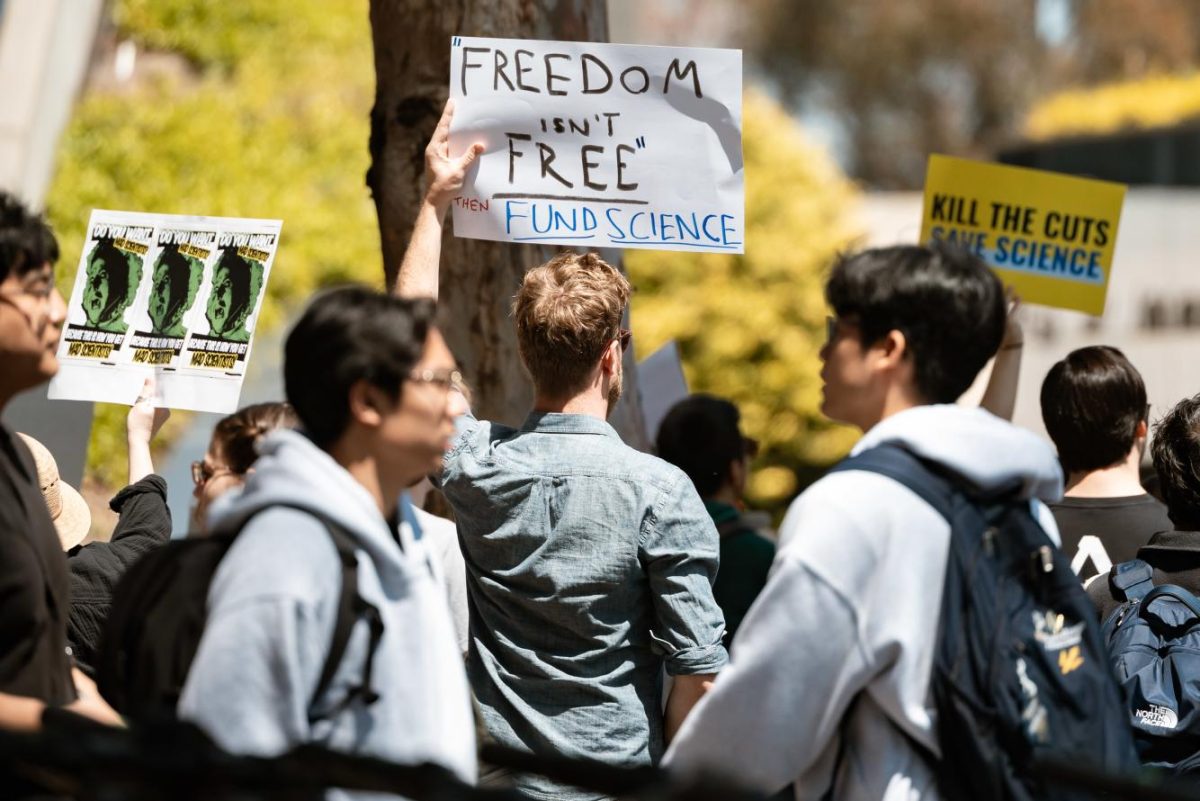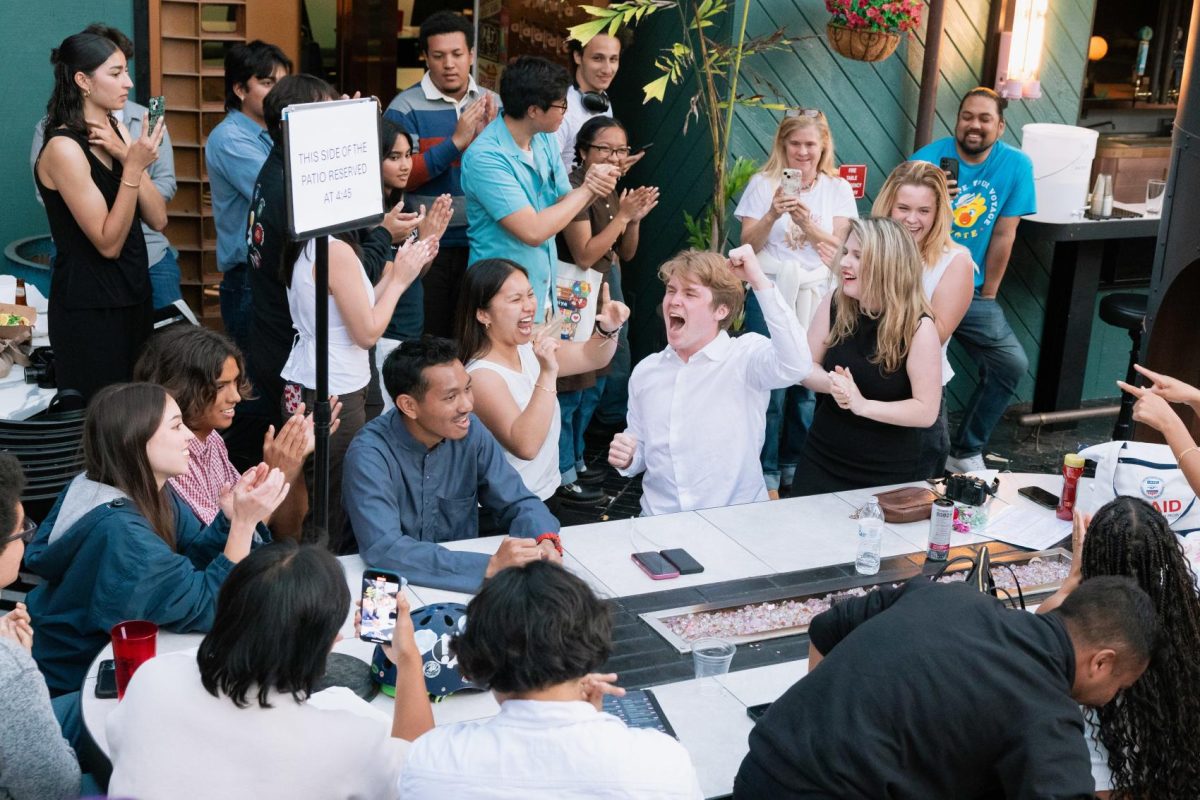Gupta announced Friday morning that he wished to pull funding from controversial humor newspaper the Koala, whose editor in chief made a racial slur on Student-Run Television the night before in reference to Black Student Union members protesting the Feb. 15 “Compton Cookout.”
“We’ve tried, throughout this year, to redo [the media guidelines], and essentially not fund [the Koala],” he said at an impromptu meeting. I don’t know if it’ll get rid of them, but on the part of A.S., we can defund them — we absolutely can defund them, and I believe we must defund them.”
Gupta said he had the executive power to freeze media-org funding because the current allocation of money for media organizations violates Section II of the A.S. Constitution. The section states the role of the council is “to create and execute programs which serve the collective interests of the undergraduate population.” According to Gupta, the current system — which has funded the Koala since 1982— is hurting students, and therefore not serving the collective interest.
Free speech organizations such as the Foundation for Individual Rights in Education and American Civil Liberties Union have denounced Gupta’s actions as unconstitutional, in violation of the First Amendment.
FIRE sent Gupta a seven-page letter requesting that he end the funding freeze immediately.
Gupta said he is working with UCSD legal counsel.
“I’m not going to bow down to threats of litigation,” he said.
Gregorian said he has contacted the ACLU and FIRE, and is working closely with the Student Press Law Center. Although lawyers from these organizations have assured him that they will represent the Koala in court, he said he plans to file a grievance with the campus judicial board before involving outside action.
“We’re essentially trying to resolve this issue inside of UCSD first,” he said.
Gregorian emphasized that Gupta’s actions were unconstitutional because he froze funding due to content.
Gupta has chartered a media review board to reevaluate the process of allocating funds to student publications. The board consists of seven media-org representatives and seven representatives from the Student Affirmative Action Committee — a diversity-oriented group that includes the BSU — along with seven other representatives from various councils and groups.
“If Utsav contends that this is about content, not funding, I implore people to ask why SAAC is given the same number of media votes as media [organizations],” he said. “If this isn’t content-related, why are they even involved?”
Gregorian and Thomas Dadourian — co-manager of the now-defunct SRTV — have been denied access to a number of BSU events.
Gregorian said he tried to speak at the “Open and Honest Dialogue” forum, held in Muir College on Tuesday night by BSU Vice Chair Fnann Keflezighi, but was prevented because she didn’t “trust” him.
“They’re allowed to do that since it is a private, not university-sanctioned, program” he said. “I just think it wasn’t open, or honest.”
Because of privacy privileges at student-run events, Gregorian said he thought the BSU, by walking out of the university teach-in and holding its own, was creating a limited forum where opponents could be silenced.
Dadourian was barred from filming at both the Monday-night BSU meeting and the “Open and Honest Dialogue” forum.
“I explained to Fnann that it would be from an objective viewpoint,” he said. “She asked the crowd to raise their hands if anyone was uncomfortable with being recorded, and no one raised their hand.”
Dadourian was still denied access, though he said other members of the forum were recording videos.
The free-speech issue was discussed at the A.S. meeting last night. Various guests — including Vice Chancellor of Student Life Gary Ratcliff — asked the council to continue the freeze until new guidelines were created.
Vice President of Finance and Resources Peter Benesch said that the council is also working with legal counsel, who has assured them that the freeze is not a violation of rights because it did not single out the Koala.
“Legal counsel is assuring us that there are mechanisms we can put in place so that we do not work against ourselves with hate speech, [simply] because of structures we have in place,” Benesch said.
Associate Vice President of Student Organizations Andrew Ang said freezing funds is not violating the First Amendment.
“It’s not our fault they didn’t find other sources in previous years,” he said.
Sixth College Senator John Condello disagreed.
“These organizations are funded by [the council], so pulling funding [will amount to] silencing them,” he said. “The answer is more speech, not less.”
The council voted to maintain the funding freeze until discussed by the campus media committee. The committee, open to the public, is meeting tomorrow at 8 p.m. in the A.S. Forum on the fourth floor of Price Center East.
Readers can contact Angela Chen at [email protected].





